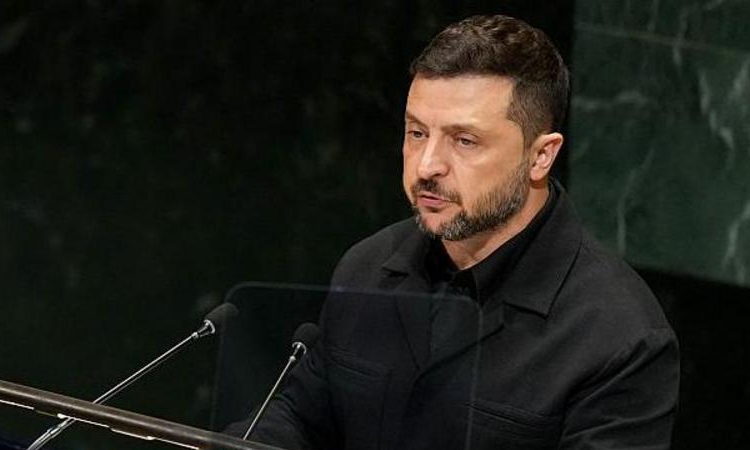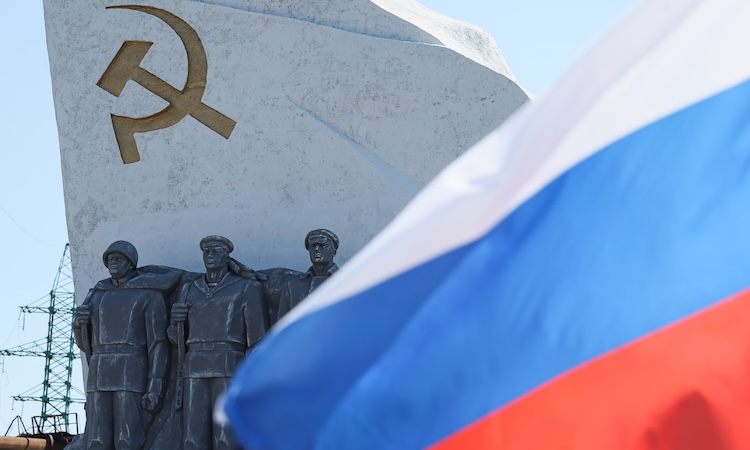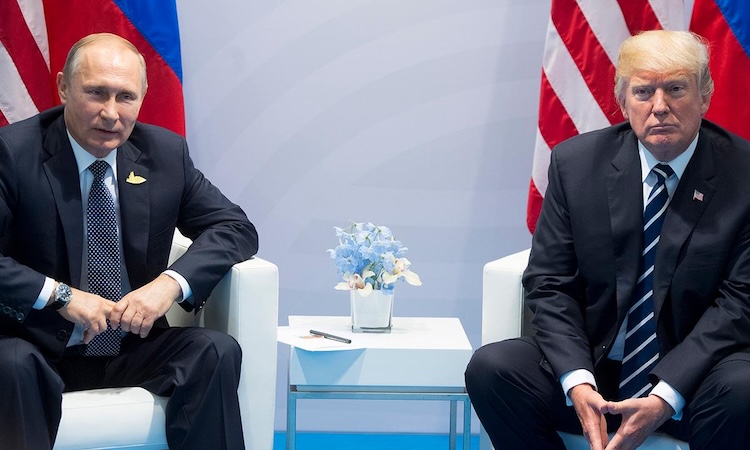Petro Poroshenko, the leader chosen by the west to transform Ukraine into a vassal state of the European Union and a launchpad for Nato provocations against Russia, has been crushingly defeated in the presidential election on 21 April.
His opponent in the run-off, Volodymyr Zelensky, secured a full three-quarters of the vote. This confirmed the trend already charted by the first round of the election on 31 March, when Zelensky won over 30 percent of the vote and Poroshenko only had 18 percent, trailed by Yulia Tymoshenko with about 13 percent.
This outcome is a massive vote of no confidence in the Poroshenko government, which has sabotaged the national economy, fostered corruption, imposed austerity, suppressed dissent and stoked war in the east, all the while salting away fabulous personal wealth for the president’s own clan affiliates.
It remains to be seen if the country is ready to embark on a genuinely different course.
Farcical campaign circus
Once the first round had seen the electoral race pared down to a duel between Poroshenko and Zelensky the campaign circus went into overdrive, with Poroshenko struggling to maintain the pose of experienced elder statesman whilst the comedian-turned-politician Zelensky used his showbiz skills to upstage his opponent.
The campaign rapidly degenerated into farce, with both sides resorting to character-assassination: Zelensky smearing Poroshenko as an alcoholic whilst Poroshenko smeared Zelensky as a drug addict.
To complete this edifying spectacle they challenged each other to submit to a blood test. Both complied, both passed the test, then the Poroshenko camp pointed out that the clinic used by Zelensky was run by a mate of his. Zelensky declined to be tested at the Olympic national sports complex, darkly hinting that a trap was being set.
By contrast with all the razzmatazz, the actual campaign politics were banal in the extreme, with Poroshenko banging the war drum, Tymoshenko making wild populist pledges to treble wages in five years and Zelensky refusing to be pinned to any coherent position.
Further sidelining Ukraine’s ethnic Russians
Poroshenko might have hoped that the absence of so many of Ukraine’s Russian speakers from the electoral roll would have favoured his electoral chances.
After all, the size of the electorate was much diminished by comparison with the one that voted for former president Victor Yanukovych, whose overthrow by a violent western-backed coup in 2014 paved the way for the junta headed by Petro Poroshenko.
After the secession of Crimea and its subsequent federation to Russia, coupled with the proclamation of people’s republics in Lugansk and Donetsk, the electoral roll has effectively been ethnically cleansed of millions of people of Russian descent.
Not satisfied with this, Kiev also blocked Ukrainian citizens working in Russia from voting at the Ukraine embassy, citing security concerns. Yet come election day, none of this helped Poroshenko.
Zelensky: oligarch-backed court jester sends mixed messages
It is a mark of the desperation and anger of the masses that the only available alternative to Poroshenko should be a licensed jester on the payroll of a rival oligarchic clan leader.
Zelensky is a familiar face on Ukraine’s TV screens – a comedian and actor whose most famous role was that of a history teacher who finds himself elevated to the presidency. Ukrainians have watched mesmerised as life appears to imitate art, seeing Zelensky as an ‘ordinary guy’ who is dedicated to cleaning up corruption.
However, whilst Zelensky is portrayed as a political outsider, it would be naive to pretend that he is without friends in high places, most notably Ihor Kolomoisky.
Kolomoisky was cofounder of PrivatBank in the early nineties; after the bank’s nationalisation in 2016 allegations of fraud emerged and in 2017 the high court in London froze Kolomoisky’s shares. The case is still dragging on, whilst Kolomoisky finds it politic to remain in Israel at least until the election is over.
Aside from bank fraud, Zelensky’s sponsor has extensive media interests, handy when it came to running his protege’s campaign.
Some, noting that Zelensky comes from the largely Russophone industrial city of Krivoy Rog, claim to have detected coded signs that he could be ready to take a more nuanced stance towards Russia, but it is hard to detect this from garbled speeches like this:
“If I meet with Mr Putin, I will tell him: well, finally, you have returned our territories. How much more are you willing to compensate money for taking our territories and helping people who participated in the escalation [of the situation] in Crimea and Donbass on the entire their terrible, disgusting way (sic)?”
However, it should be noted that Zelensky has expressed a willingness to engage with the Minsk peace progress alongside the Normandy Four grouping of Ukraine, Russia, France and Germany. We can only wait and see.















